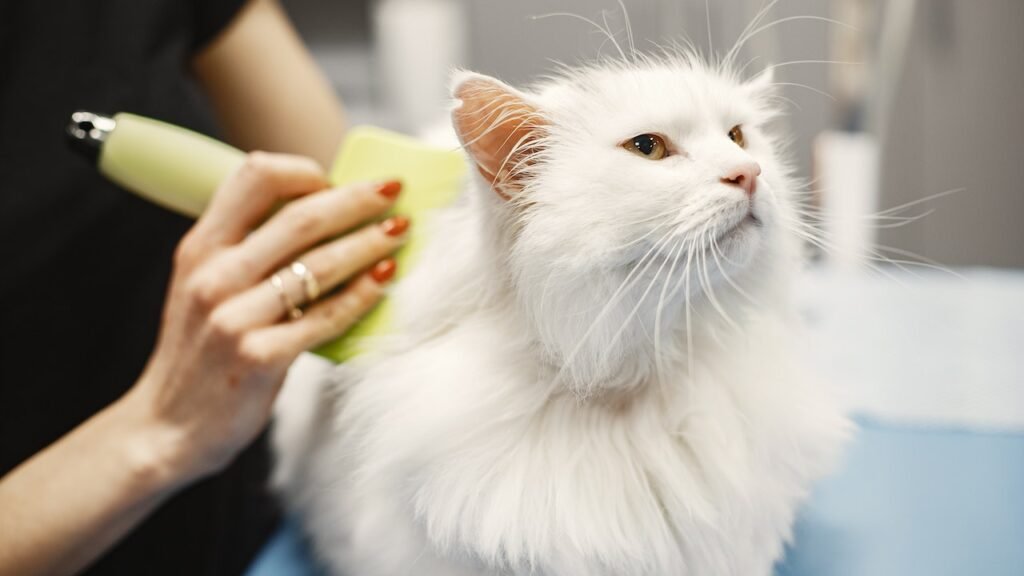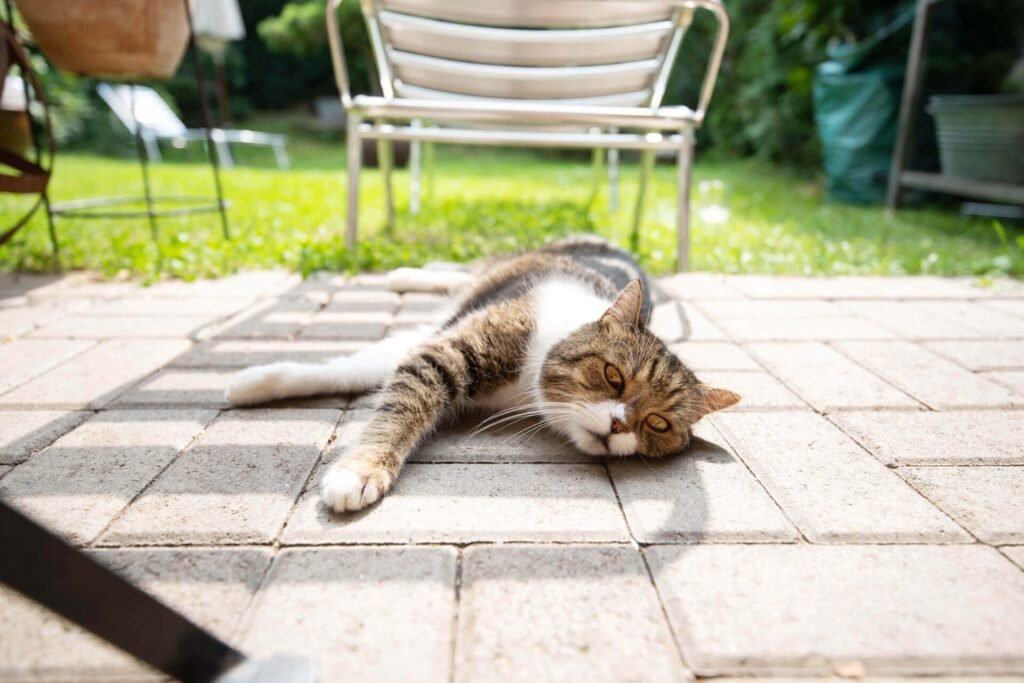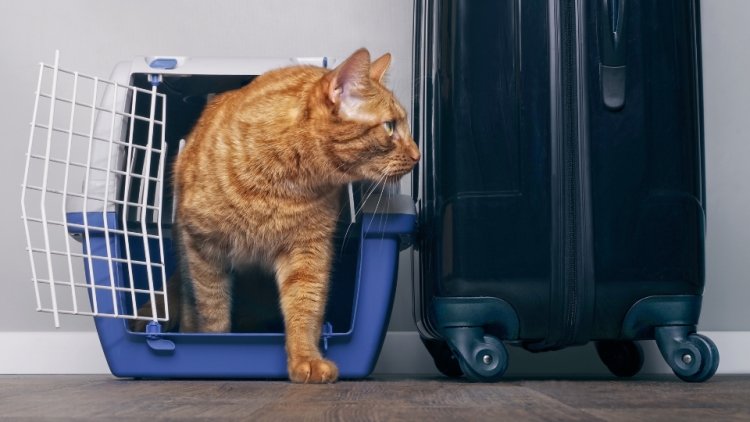
Complete Cat Health Guide for Every Life Stage
Cats are wonderful companions, and as responsible cat owners, it is crucial to provide them with proper care and attention at every stage of their lives. Understanding the specific needs of your feline friend is essential for ensuring their well-being and overall health. In this comprehensive cat health guide, we will walk you through the various life stages of cats and provide valuable insights into nutrition, exercise, grooming, vaccinations, common health issues, veterinary care, and more. Let’s delve into the world of cat care and explore the best practices for each life stage.
Read More: Top 7 Ideas For How to Keep Your Cat Entertained
Introduction to Cat Health Guide

As a cat owner, you play a significant role in your furry friend’s health and happiness. This guide aims to equip you with the knowledge and understanding necessary to provide optimal care for your cat throughout their life. By focusing on key aspects such as nutrition, exercise, grooming, and preventive healthcare, you can ensure that your cat leads a healthy and fulfilling life.
Understanding the Life Stages of Cats
Cats go through distinct life stages, each with its unique characteristics and requirements. By recognizing and addressing the specific needs of your cat at each stage, you can promote their well-being effectively.
Kitten Stage
The kitten stage is a critical period of growth and development. During this time, kittens require a well-balanced diet, plenty of socialization, and regular veterinary check-ups to monitor their growth and prevent potential health issues.
Adult Stage
In the adult stage, cats require a nutritious diet tailored to their age and lifestyle. Regular exercise and mental stimulation are vital to keep them physically fit and mentally engaged. Additionally, monitoring their weight and addressing any behavioral changes is crucial for maintaining their overall health.
Senior Stage
As cats age, they become more susceptible to certain health conditions. Senior cats require special attention, including a diet that supports joint health and addresses age-related issues. Regular veterinary care, including check-ups and diagnostic screenings, can help detect and manage potential age-related health concerns.
Proper nutrition is the foundation of good health for cats. Providing a balanced diet that meets their specific nutritional requirements is essential at every life stage.
Balanced Diet
A balanced diet for cats includes high-quality protein, essential fatty acids, vitamins, and minerals. Commercially available cat food that is specifically formulated to meet their nutritional needs can serve as a convenient and reliable option.
Age-Appropriate Nutrition
Kittens, adult cats, and seniors have varying nutritional needs. Choosing age-appropriate food ensures that your cat receives the right nutrients in the right proportions.
Special Dietary Needs
Certain cats may have unique dietary requirements due to allergies, sensitivities, or medical conditions. Working closely with your veterinarian can help identify and address these needs effectively.
Exercise and Mental Stimulation
Regular exercise and mental stimulation are crucial for keeping cats physically and mentally healthy. Engaging in playtime and providing environmental enrichment are essential components of cat care.
Playtime and Physical Activity
Interactive play sessions with toys that mimic prey can help satisfy your cat’s natural hunting instincts. Engaging in physical activities, such as climbing and scratching, also promotes muscle strength and flexibility.
Environmental Enrichment
Creating a stimulating environment with scratching posts, perches, and hiding spots allows cats to explore and engage with their surroundings. Rotating toys and providing vertical spaces further enrich their environment.
Puzzle Toys and Treats
Puzzle toys and treat-dispensing toys provide mental stimulation and encourage problem-solving skills. These interactive toys keep cats entertained and mentally sharp.
Grooming and Hygiene

Proper grooming and hygiene practices contribute to a cat’s overall health and well-being. Regular grooming sessions help maintain a clean and healthy coat, prevent matting, and detect any skin issues or abnormalities.
Regular Brushing
Brushing your cat’s coat helps remove loose hair, prevents hairballs, and stimulates blood circulation. It also strengthens the bond between you and your feline companion.
Dental Care
Oral health is crucial for cats, as dental issues can lead to various health problems. Introducing a dental care routine, such as brushing their teeth or providing dental treats, promotes good oral hygiene.
Nail Trimming
Regular nail trims prevent overgrowth, discomfort, and potential injuries. Gentle handling and positive reinforcement can make nail trimming a stress-free experience for both you and your cat.
Vaccinations and Preventive Care
Vaccinations and preventive care play a vital role in safeguarding your cat against infectious diseases and maintaining their overall health. Consult with your veterinarian to develop a personalized vaccination schedule and implement preventive measures.
Core Vaccines
Core vaccines protect cats against common and potentially fatal diseases, such as rabies and feline distemper. Adhering to the recommended vaccination schedule is essential for optimal protection.
Parasite Control
Parasite prevention is crucial for keeping your cat healthy. Regular deworming and the use of flea and tick control products are important preventive measures.
Regular Check-ups
Regular veterinary check-ups allow for the early detection of health issues and ensure that your cat receives appropriate medical care. Routine examinations, blood tests, and screenings help monitor their overall health and detect any underlying conditions.
Common Health Issues
While cats are generally resilient creatures, they can experience various health issues throughout their lives. Being aware of common health problems enables you to recognize potential symptoms and seek timely veterinary care.
Respiratory Infections
Respiratory infections, such as feline herpesvirus and calicivirus, are common among cats. Sneezing, coughing, and nasal discharge are typical signs of respiratory issues that require veterinary attention.
Urinary Tract Problems
Cats are prone to urinary tract problems, including urinary tract infections and blockages. Increased frequency of urination, blood in the urine, and discomfort while urinating are signs that necessitate immediate veterinary care.
Digestive Disorders
Digestive disorders, such as vomiting and diarrhea, can occur due to various reasons, including dietary indiscretion and gastrointestinal infections. Monitoring your cat’s digestion and seeking veterinary advice for persistent issues is essential.
Signs of Illness

Cats may exhibit subtle signs of illness that require attention and veterinary care. Being observant of any behavioral changes or physical abnormalities allows for early intervention.
Behavioral Changes
Changes in activity level, appetite, litter box habits, or social interaction can indicate underlying health issues. Paying attention to these changes helps identify potential problems.
Loss of Appetite
A sudden loss of appetite or refusal to eat can be a sign of illness. If your cat goes without eating for more than 24 hours, consult with your veterinarian promptly.
Litter Box Issues
Inappropriate elimination or changes in litter box habits can indicate urinary or gastrointestinal problems. Monitoring litter box usage helps identify potential health concerns.
Veterinary Care and Emergency Situations
Choosing a reputable veterinarian and being prepared for emergency situations is essential for your cat’s well-being. Establishing a relationship with a trusted veterinary professional ensures that your cat receives quality care when needed.
Choosing a Veterinarian
Research and select a veterinarian who has experience in feline care. Recommendations from other cat owners and visits to the clinic can help you make an informed decision.
Emergency Preparedness
Being prepared for emergencies includes having a first aid kit, knowing basic first aid techniques, and understanding when immediate veterinary care is necessary. Familiarize yourself with emergency veterinary clinics in your area.
First Aid for Cats
Knowing how to administer basic first aid, such as cleaning wounds or stabilizing fractures, can be valuable in emergency situations. However, always seek professional veterinary care as soon as possible.
Cat Health Insurance

Cat health insurance provides financial protection in case of unexpected medical expenses. Research different insurance providers, evaluate their coverage options, and choose a plan that suits your needs and budget.
Read More: 8 Reasons to Walk Your Cat
FAQs
Q1. How often should I take my cat to the vet?
It is recommended to take your cat for regular veterinary check-ups at least once a year. However, senior cats or cats with underlying health issues may require more frequent visits. Consult with your veterinarian for a personalized schedule.
Q2. What should I do if my cat stops eating?
A sudden loss of appetite can be a sign of illness and should not be ignored. If your cat refuses to eat or goes without food for more than 24 hours, contact your veterinarian for guidance.
Q3. How can I prevent urinary tract problems in my cat?
Providing fresh water, a balanced diet, and a clean litter box are essential for preventing urinary tract problems. Additionally, maintaining proper hydration and regular veterinary check-ups can help detect any early signs of urinary issues.
Q4. Are there any natural remedies for cat health issues?
While some natural remedies may provide temporary relief or support, it is essential to consult with your veterinarian before administering any alternative treatments. They can provide guidance on safe and effective options for your cat.
Q5. Is it necessary to groom a short-haired cat?
Yes, even short-haired cats require regular grooming. Brushing helps remove loose hair, prevents matting, and allows you to monitor their skin and coat health. It is also an opportunity for bonding and maintaining a strong relationship with your cat.
Conclusion
By following this complete cat health guide, you can ensure that your feline companion receives the care they need at every life stage. From providing a balanced diet and regular exercise to grooming, vaccinations, and preventive care, every aspect contributes to their overall well-being. Remember to monitor their health closely, seek veterinary advice when needed, and shower them with love and attention. Your cat’s health and happiness are in your hands.









3 Comments